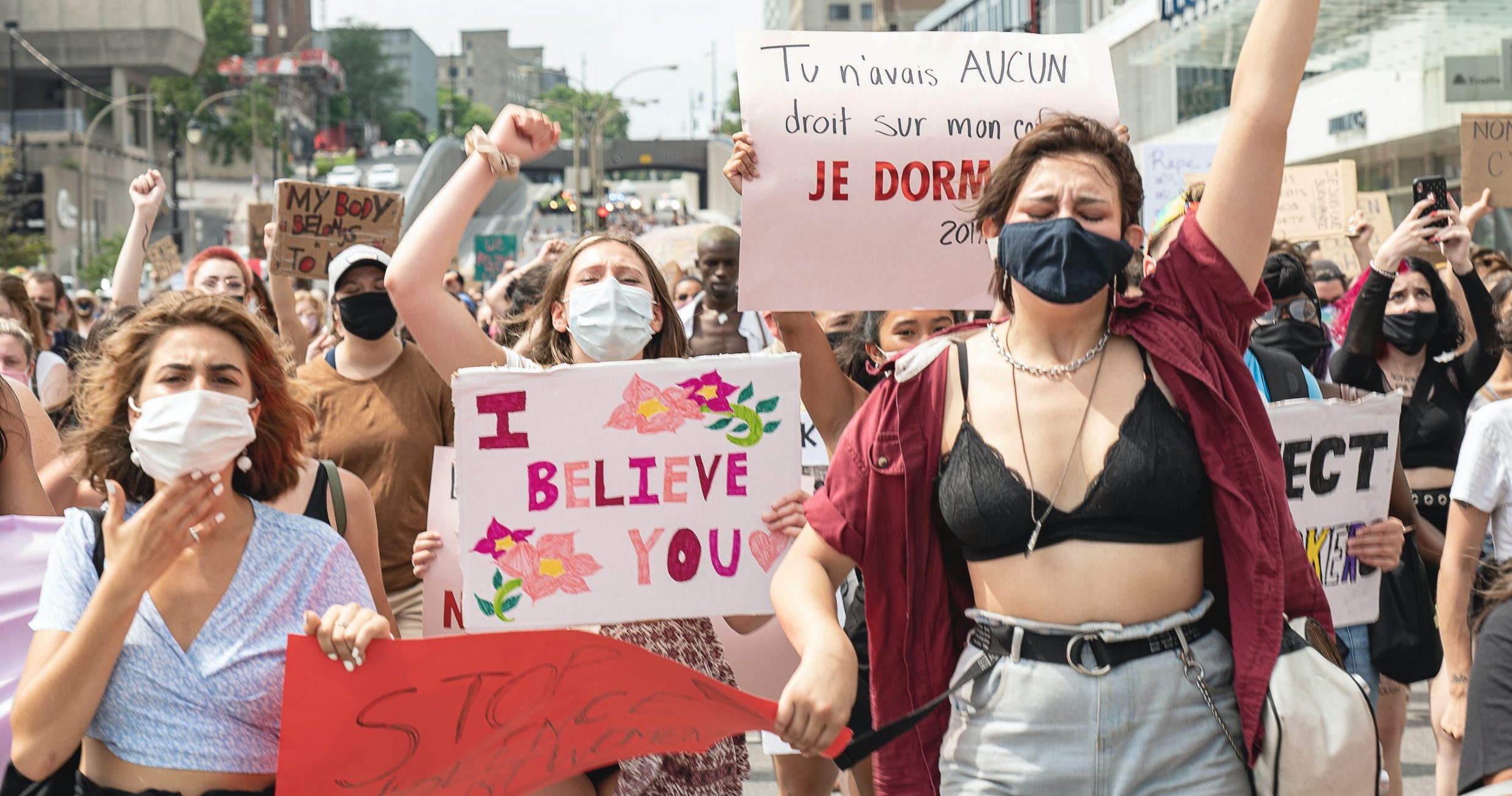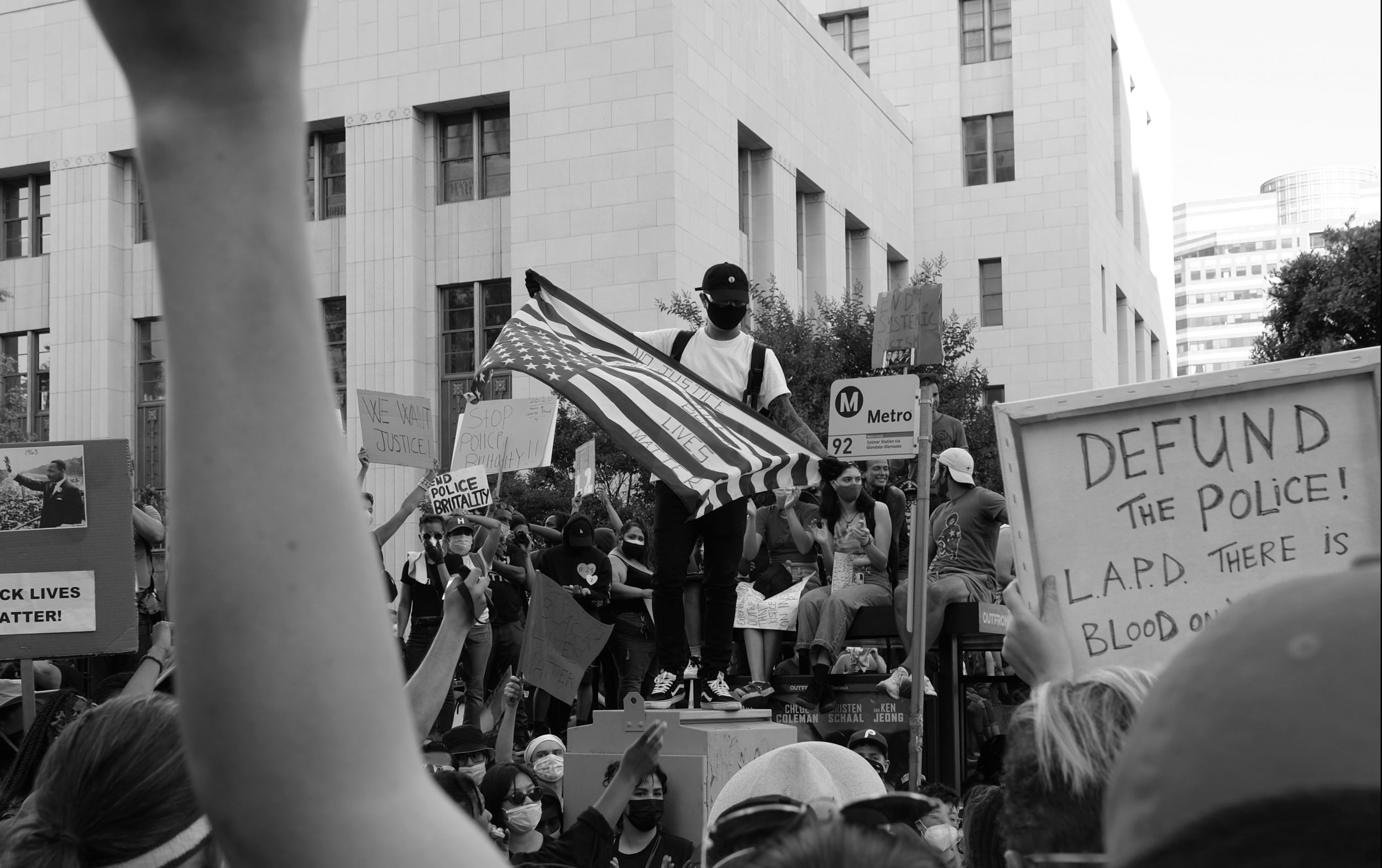 Kathryn Claire Higgins, a writer, scholar and teacher at the University of Pennsylvania, who together with Sarah Banet-Weiser is the co-author of Believability: Sexual Violence, Media, and the Politics of Doubt, writes here about Donald Trump, E. Jean Carroll, and the shifting goalposts of believability for survivors of sexual violence.
Kathryn Claire Higgins, a writer, scholar and teacher at the University of Pennsylvania, who together with Sarah Banet-Weiser is the co-author of Believability: Sexual Violence, Media, and the Politics of Doubt, writes here about Donald Trump, E. Jean Carroll, and the shifting goalposts of believability for survivors of sexual violence.
Let the record show that the twenty-four hours spanning May 9th to May 10th in the year 2023 was a bumper day for the disbelieved women of the United States.
In Los Angeles, Tory Lanez was denied a retrial after being convicted of shooting rap artist Megan Thee Stallion. Elsewhere in LA that same day, musician Marilyn Manson – who has been accused of sexual assault and abuse by multiple women – had a string of defamation claims against his ex-girlfriend Evan Rachel Wood thrown out before trial.
And in New York, less than twenty-four hours later, a unanimous jury decided that writer E. Jean Carroll’s story about being groped and assaulted by Donald Trump in a changing room in Bergdorf’s in 1996 was, on the balance of the available evidence, more likely to be true than not. Trump was, at last, found liable for sexual abuse in a court of law – enshrining a truth that, for many of us, has felt obvious for years.
How happy should we be, as feminists, about these outcomes? How triumphant? How relieved? Almost exactly one year ago, writing for The New York Times, columnist Michelle Goldberg declared “the death of #MeToo.” The immediate context for this declaration was the vitriolic and virulent abuse being directed online at actor Amber Heard as she was facing a hypervisible defamation lawsuit from her ex-husband, actor Johnny Depp. Many feared that Depp’s public humiliation of Heard would become a new template for accused men everywhere, and it seemed that whatever sliver of compassion and good faith has been so recently extended to women who speak out publicly about sexual assault was now being – at least in Heard’s case – fully retracted. Are we now witnessing a resuscitation? Is this a case of: #MeToo is dead, long live #MeToo?
Almost as soon as there was #MeToo, there was backlash. At the core of this backlash, always, have been appeals to the importance of truth. In #MeToo, many detractors felt sure they were witnessing the arrival of a fearful future in which all women were automatically believed, all the time, without question or scrutiny. Our public conversation quickly shifted from one about sexual violence and gender-based abuse to one preoccupied with the politics of public accusation. Fears about false accusations and “ruined lives” firmly took center stage; the benefit of the doubt, it seemed, was a benefit only powerful men could and should be trusted with.
It wasn’t that they hated women, they insisted. They just loved truth! Pure, uncut, cold, rational, distanced, proven-beyond-question truth. Without truth, they chided, there could be no justice. And so, it was sad but necessary to withhold justice from any accuser who could not, beyond all remnants of doubt and suspicion, be established as indisputably truth-full. This was not a political stance, they assured, but simply an unimpassioned defense of rational scrutiny and due process. Innocent until proven guilty, as they so love to remind us.
But proven where, and how? Very few of these detractors have a clear description to offer of what an accusation of sexual assault (and, the person making that accusation) would need to actually do to meet this standard. What, we asked time and time again, would qualify an accusation as wholly above doubt, as deserving of belief? Witnesses? Photos? An airtight testimony? So many of us have had all these and more. Doubt has lingered, nonetheless.
When really pressed for an answer to the where and the how of women’s illusive believability, the answer given is almost invariably: through conviction in a court of law. A court of law, that famously apolitical utopia where fewer than 5% of sexual assaults committed in the United States ever end up. A conviction, that flimsy idol of justice that still only a miniscule fraction of survivors – less than 3% by conservative estimates – ever gets to see. How convenient.
Truth was a hoop for survivors to leap through, always held just a little too high. But on Tuesday, against the odds, E. Jean Carroll stuck the landing. She delivered to the leagues of the ever-doubtful the one thing they have always insisted would satisfy their suspicion – a verdict in a court of law. Will they now, then, be rushing to her side, championing her as a courageous truth-teller? Will #DonaldTrumpIsALiar be trending on Twitter, as it did for Heard?
The fig leaf, I fear, is about to be blown off.
If history is any sort of guide, then hoping that Carroll’s victory in court will change the tide in any meaningful way on the question of whether Trump is the kind of person worthy of high office and enormous political responsibility really is hoping for far too much. Who among us who has been paying attention – who has really cared to pay attention – didn’t already know that Trump was abusive towards women? The evidence of this has never been scarce. Which is to say, the doubt of it has never actually been based in a lack of evidence. The problem of women’s unbelievability has always been far more pernicious than that. If only it were so simple that proof could undo it.
If we’re going to have a conversation about truth, here’s an uncomfortable one: believability is, and has always been, so much more about care than about knowledge, so much more about which facts we care to attend to than what we believe to be factual in the first place. This is the state of affairs to which the injunction to #BelieveWomen responds.
When, in 2018, Christine Blasey Ford took the stand to tell a Senate Judiciary Committee about how she had been pinned down by Brett Kavanaugh in an attempted sexual assault when they were both teenagers, there were surely some who believed the entire story to be a fabrication. Most of her doubters, however, probably arrived at conclusions far less conspiratorial. Perhaps some version of the event described by Blasey Ford had taken place – just not the version she offered? Maybe her tears were a strategic play for sympathy, not a genuine expression of her pain? Perhaps Kavanaugh had done what she described – but was that really so bad, so violent, so damning? Most depressingly of all, perhaps they thought: wouldn’t Kavanaugh missing his shot at a seat on the US Supreme Court simply be worse, all things considered, than whatever he had done to her?
These same doubts are likely to plague Carroll, even as she is officially vindicated by the deeply flawed metric of truth that the law offers. If the #MeToo movement has made anything undeniably clear, it is that the choice to speak out or stay silent about sexual assault remains a choice between two different flavors of violent suppression. This verdict will not stop Carroll from being harassed, intimidated, derided, smeared, chastised, and belittled – potentially, for the rest of her life. Above all, it will not shield her from doubt – a doubt based not in a skepticism around specific facts, but in a far more devastating lack of care for what those facts can tell us about Trump and about the lives of women.
#BelieveWomen is not a call to believe every woman in every instance, no matter how much doubt one is confronted with and no matter its basis. It is, rather, a call to pay attention to the world, to care about the truths of gendered violence and power that are so undeniably manifest within it. These truths do not need proving: much like the truths of structural racism or capitalist exploitation, they scream at us from every direction.
E. Jean Carroll showed immense bravery and fortitude pursuing her case against one of the most powerful men in the world. But how much endurance should we have reasonably demanded of her, simply to confirm what has always been in plain sight? Claiming her victory after the verdict, Carroll told reporters: “Now, the world knows the truth.” But truth cannot induce care, no matter how much we might want it to. Carroll was smeared and silenced – and that is, surely, an injustice in its own right. But the far deeper problem is that we still don’t live in a society that can recognize stories like Carroll’s for that they truly are: always, fundamentally, believable. This is the larger truth that – in spite of all the evidence – we continue to doubt.
This post represents the views of the author and not the position of the Media@LSE blog nor of the London School of Economics and Political Science
Featured image: Photo by Tingey Injury Law Firm on Unsplash





